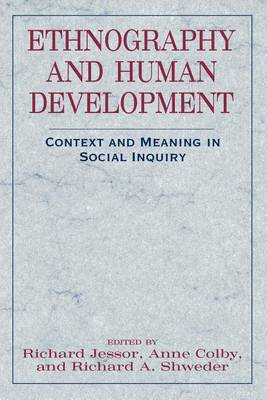John D & C T Macarthur FNDTN Ser Mental Health/DEV MF (CHUP)
2 total works
Studies of human development have taken an ethnographic turn in the 1990s. In this volume, anthropologists, psychologists and sociologists discuss how qualitative methodologies have strengthened the understanding of cognitive, emotional and behavioural development, and of the difficulties of growing up in contemporary society. Part One, informed by a post-positivist philosophy of science, argues for the validity of ethnographic knowledge. Part Two examines a range of qualitative methods, from participant observation to the hermeneutic elaboration of texts. In Part Three, ethnographic methods are applied to issues of human development across the life span and to social problems including poverty, racial and ethnic marginality, and crime. Restoring ethnographic methods to a central place in social inquiry, the 22 essays in this text should interest everyone concerned with the epistemological problems of context, meaning and subjectivity in the behavioural sciences.
One of the myths about families in inner-city neighbourhoods is that they are characterized by poor parenting. The sociologist Frank Furstenberg and his colleagues explode this and other misconceptions about success, parenting, and socioeconomic advantage in this text. The book launches a series which focuses on how and why youth are able to overcome - rather than succumb to - social disadvantages. Based on more than 500 interviews and qualitative case studies of families in inner-city Philadelphia, the text reveals how parents managed different levels of resources and dangers in low-income neighbourhoods and how this management, rather than community involvement, contributed to the success of their children. The authors detail the factors that shape the trajectories of adolescents and in so doing provide information about programmes and services that should be useful to policy makers, sociologists, educators, and indeed anyone concerned with the fate of the urban poor.

